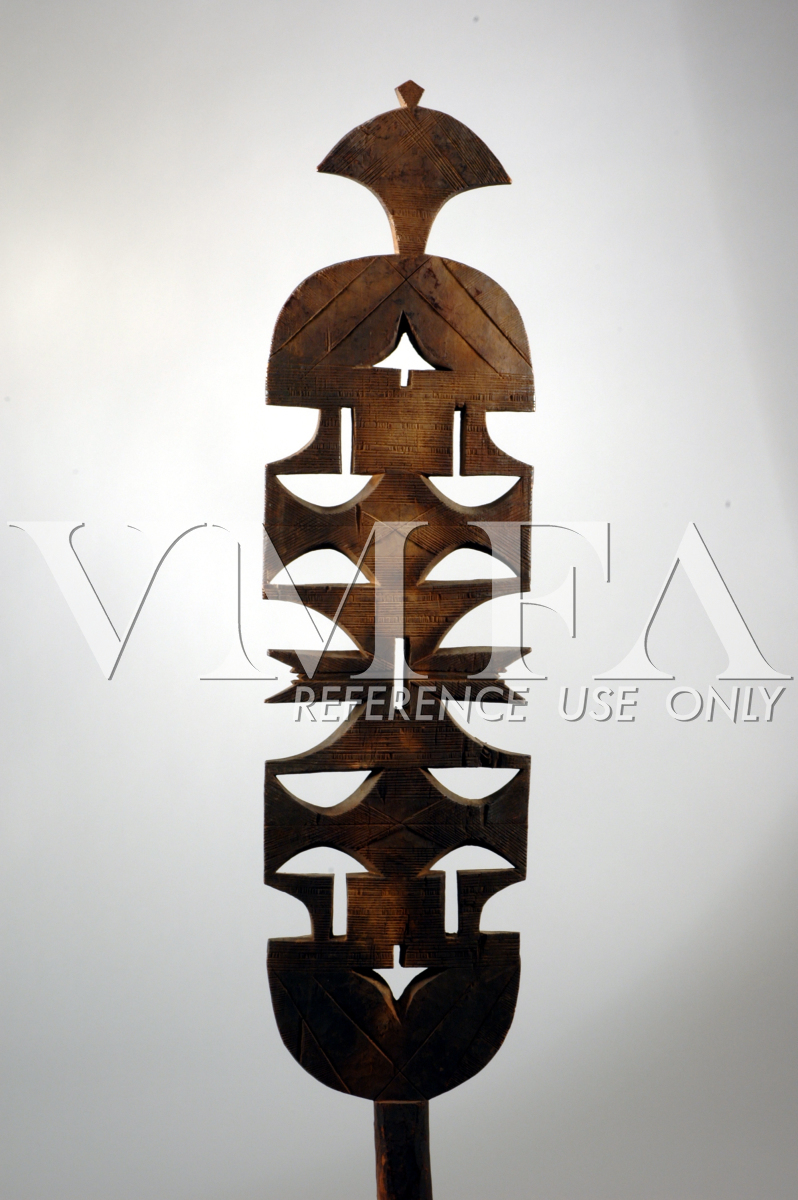
Ehel (Tent Stake) (Primary Title)
Unknown (Artist)
The Tuareg people are masters of the open Sahara. For several thousand years, this loose confederation of nomads has made the desert their domain. As pastoralists—people who base their livelihoods on raising domestic animals—the Tuareg raise goats and command large herds of camels, taking them by caravan across the desert to trade them for salt, gold, and other commodities.
Historically, the Tuareg home is the tent, or ehen, which is the same as their word for marriage. Several poles are needed to erect the tent and to hang clothing and utensils. Decorated stakes, or ehel, like these are used to secure woven mats around the parents’ bed, making a wall inside the tent. The elaborate carving of these stakes is typical of Tuareg design, which at its heart combines strong geometry with surface pattern and openwork.
Some object records are not complete and do not reflect VMFA's full and current knowledge. VMFA makes routine updates as records are reviewed and enhanced.
